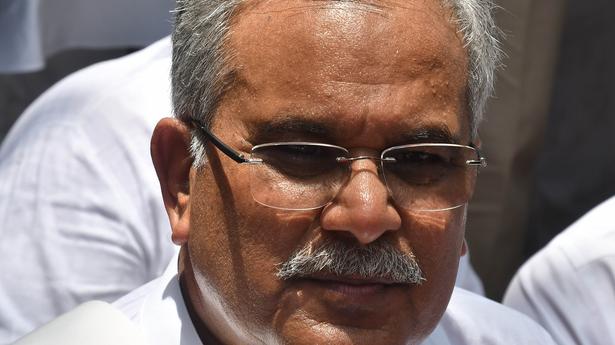
Chhattisgarh govt. implements PESA Rule-2022
The Hindu
The rules will allow tribals to take decisions on their own about resources like forest, land and water
The Chhattisgarh government on Tuesday implemented the extension of panchayat rights in scheduled areas — PESA Rule-2022.
With this, Chhattisgarh tribals, who constitute 33% of the population, will now be able to take their own decisions related to water, forest, land. Chief Minister Bhupesh Baghel made the announcement on the occasion of World Tribal Day on Tuesday.
PESA is a Central law that has been in existence since the 1990s. However, its implementation is State-specific. Chhattisgarh has formed its set of rules while many States with significant tribal population are yet to implement the provisions of the Act.
“This will further empower gram sabha to protect the tribal rights. According to the new rules, 50% of the members of gram sabha will be from tribal communities and 25% of them will be female,” said Mr. Baghel.
He also listed out some of the other initiatives his government has taken in the past three years. “The State government is procuring 65 kinds of minor forest produce at support price and this is leading towards the economic empowerment of tribal people. In Bastar and Surguja region, tribal people are demanding opening of banks in their villages. The government is making sincere efforts to provide better healthcare facilities to the tribals, as a result of which malaria cases have reduced by 65%. Moreover, lakhs of people are also being benefited from the Chief Minister Haat Bazar Clinic,” Mr. Baghel said.

Prodancy Pvt Ltd, a medtech startup specialising in surgical consumables for joint replacement surgeries, has successfully raised ₹2.14 crore in a funding round co-led by Campus Angels Network and Keiretsu Forum Chennai, which also saw participation from existing investors Center for Cellular & Molecular Platforms (C-CAMP) and other angel investors.

“Writing, in general, is a very solitary process,” says Yauvanika Chopra, Associate Director at The New India Foundation (NIF), which, earlier this year, announced the 12th edition of its NIF Book Fellowships for research and scholarship about Indian history after Independence. While authors, in general, are built for it, it can still get very lonely, says Chopra, pointing out that the fellowship’s community support is as valuable as the monetary benefits it offers. “There is a solid community of NIF fellows, trustees, language experts, jury members, all of whom are incredibly competent,” she says. “They really help make authors feel supported from manuscript to publication, so you never feel like you’re struggling through isolation.”









